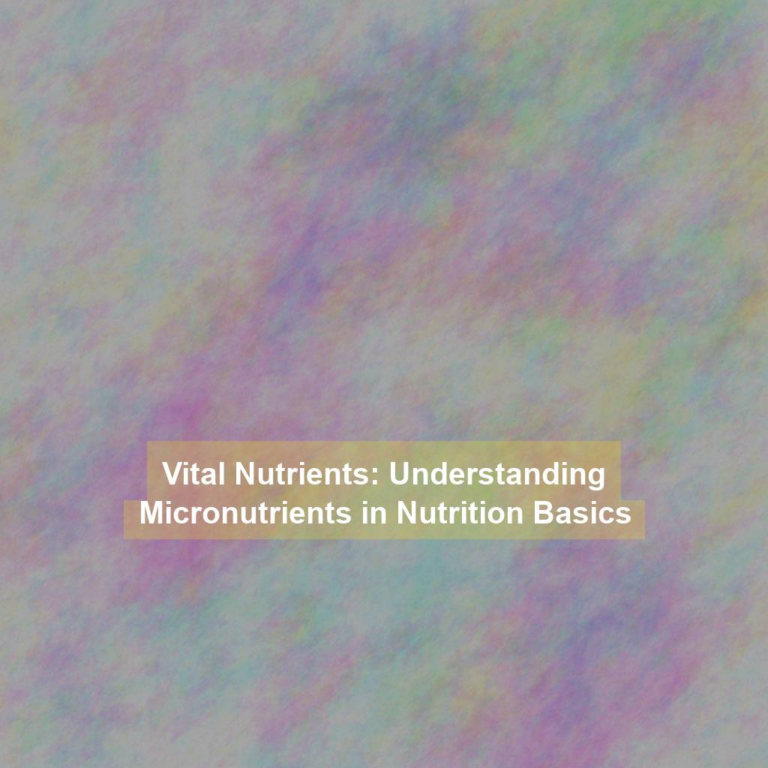Imagine your body as a well-oiled machine, with each part performing its own crucial function. Now, picture vitamins as the essential fuel that keeps this intricate system running smoothly.
As you go about your day, you might be unaware of the pivotal role that vitamins play in maintaining your overall health and well-being. But have you ever wondered how these tiny nutrients have such a significant impact on your body?
There’s much more to discover about the intricate relationship between vitamins and nutrition, and you’ll be amazed by the vital role they play in sustaining your vitality.
The Importance of Vitamins
Understanding the importance of vitamins is crucial for maintaining overall health and well-being. Vitamins play a vital role in various bodily functions, such as metabolism, immune system support, and cell repair.
For example, vitamin C is essential for collagen production, which is crucial for skin health and wound healing. Additionally, vitamin D is necessary for calcium absorption and bone health. Without adequate vitamins, you may experience fatigue, weakened immune function, and an increased risk of certain diseases.
It’s important to consume a balanced diet that includes a variety of fruits, vegetables, lean proteins, and whole grains to ensure you’re getting a wide range of vitamins. While it’s ideal to obtain vitamins from food sources, supplementation may be necessary in some cases, especially if you have dietary restrictions or specific health conditions.
Types of Essential Vitamins
To grasp the significance of vitamins, it’s essential to recognize the different types of essential vitamins that are crucial for maintaining overall health and well-being. There are 13 essential vitamins that the body needs to function properly. These include vitamin A, C, D, E, K, and the B vitamins (thiamine, riboflavin, niacin, pantothenic acid, biotin, vitamin B-6, vitamin B-12, and folate). Each of these vitamins plays a unique role in supporting various bodily functions.
Vitamin A is essential for good vision, immune function, and reproduction. Vitamin C is important for the growth and repair of tissues, as well as the absorption of iron. Vitamin D is crucial for bone health and immune function, while vitamin E acts as an antioxidant, protecting cells from damage. Vitamin K is necessary for blood clotting and bone health. The B vitamins play a vital role in converting food into energy, maintaining a healthy nervous system, and supporting healthy skin, hair, and liver. Understanding the roles of these essential vitamins can help you make informed decisions about your diet and overall health.
Functions and Benefits of Vitamins
You can benefit from understanding the functions of vitamins by recognizing how they actively contribute to your overall health and well-being. Vitamins play a crucial role in various bodily functions, supporting your immune system, aiding in energy production, and promoting healthy skin, vision, and bone strength.
Vitamin A, for instance, is essential for maintaining good vision, while vitamin D helps your body absorb calcium, vital for bone health. Vitamin C acts as an antioxidant, protecting your cells from damage and supporting the immune system. The B vitamins are involved in converting food into energy and maintaining a healthy nervous system.
Sources of Essential Vitamins
Obtaining essential vitamins from a balanced diet is vital for maintaining overall health and well-being. It’s important to include a variety of nutrient-rich foods in your diet to ensure you’re getting all the essential vitamins your body needs.
Vitamin C is abundant in citrus fruits like oranges, lemons, and grapefruits. Dark leafy greens such as spinach and kale are excellent sources of vitamin K, while carrots and sweet potatoes are rich in vitamin A.
To meet your body’s vitamin D requirements, consider incorporating fatty fish like salmon and tuna, as well as fortified dairy and plant-based milk products into your meals. Vitamin E can be obtained from nuts, seeds, and vegetable oils.
Additionally, a variety of fruits and vegetables provide essential B vitamins, such as thiamine, riboflavin, and folate. By including a diverse range of these foods in your diet, you can ensure that you’re meeting your body’s vitamin needs for optimal health and vitality.
Ensuring Optimal Vitamin Intake
Ensuring optimal vitamin intake involves incorporating a variety of nutrient-rich foods into your daily meals to meet your body’s essential vitamin needs for overall health and well-being. Start by including a colorful array of fruits and vegetables in your meals. These provide essential vitamins such as vitamin C, vitamin A, and various B vitamins. Additionally, incorporate whole grains, lean proteins, and dairy or dairy alternatives into your diet to ensure a well-rounded intake of vitamins and minerals.
Furthermore, be mindful of cooking methods, as certain vitamins can be lost during cooking. Steaming or eating raw vegetables can help preserve their vitamin content.
Supplements can be used to fill in nutrient gaps, but they shouldn’t be relied upon as the primary source of vitamins. It’s important to remember that vitamins work in synergy with each other and with other nutrients found in whole foods. Therefore, obtaining vitamins from a diverse range of foods is crucial for optimal absorption and utilization by the body.
Conclusion
In conclusion, understanding the role of vitamins in nutrition is essential for maintaining overall health and well-being. By recognizing the importance of vitamins, knowing the types of essential vitamins, understanding their functions and benefits, and being aware of sources and intake, you can ensure that you’re meeting your body’s vitamin needs.
Taking proactive steps to incorporate a variety of vitamin-rich foods into your diet will help you maintain optimal health and vitality.







